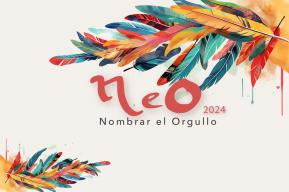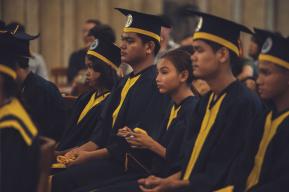News
Cambodia celebrates and calls for greater media diversity for inclusive development

On 12 December 2023, over 190 representatives from the line ministries, civil society, and the organizations of persons with disabilities, media, academia, indigenous peoples, and youth, participated in UNESCO’s Media Diversity Forum, to discuss, exchange and share innovative approaches and initiatives in the media sector to capitalize on the wealth of Cambodia’s social diversity for jointly contributing to its inclusive and sustainable development.
Capturing the multi-faceted dimensions of media and its far-reaching impact on shaping public perception and promoting social inclusion and diversity, the Media Diversity Forum was strategically designed focusing on below five distinct yet complementary sessions.
During Session 1 on Representation of Women in Cambodia’s News Media, UNESCO launched one of its flagship studies, “Who Makes the Cambodian News? An Assessment of Women’s Presence and Portrayal in Cambodian News”, the study monitored and analyzed over 4,000 news pieces and found that women are vastly underrepresented in news stories, with only 5% of news articles and reports featuring exclusively women voices. The report includes specific recommendations for stakeholders, such as line ministries, media organizations, and civil society to make tangible progress on advancing gender equality in and through media. Read more and download the report here.

Session 2 focuses on the Adaptation of Media and other Information Providers to the Needs of Persons with Disabilities (PwDs). Based on the Cambodia Demographic Health Survey (CDHS) 2021-22, the number of people with some degrees of disabilities is estimated to be about 21%. UNESCO, in collaboration with CDRI, launched another landmark report, “Information Needs Assessment for Persons with Disabilities”, which explores the difficulties that PwDs face when exercising their right to access information, and the impact on their equal participation in Cambodia socio-economic development. The study guides stakeholders in enhancing information accessibility and creating an inclusive media environment where PwDs have a stronger voice and can access critical content for informed decision-making.

Session 3 highlights the Media Representation of Indigenous Peoples and Ethnic Minority. Limited content in their languages and misinformation on social media hinder their access to accurate information to make informed decisions. However, continued efforts have been made to upskill their community members to harness the potential of new technologies to tell stories that relate to them, create alternative narratives, and that way break the negative stereotypes and perceptions of the public about them in and through media.

Cambodia has a large and increasingly well-educated youth population, who is constantly embracing diverse ideas and perspectives and exploring digital platforms to enhance their voice. Against this backdrop, Session 4 centres on Youth Taking Over: Utilizing Diverse Communication Approaches to Produce Public Interest Content. The panel shared examples of how digital content creators have been adapting to the needs of young audiences and the characteristics of digital platforms in developing and monitoring the content online, as well as the approaches taken by traditional media in attracting youth for consuming content that is of public interest.

The rapid adoption of digital technologies has also changed the way how information and news are shared, produced, and consumed. In the last Session on Redefining Media in the Digital Age, Mr. Toby Mendel, Executive Director of the Centre for Law and Democracy, invited participants to think about the fundamental question of what media in the current digital age is. He elaborates how media has enabled the availability of diverse content and the enhanced representation of communities and groups who tend be neglected in mainstream media. However, it has also led to the rampant spread and creation of harmful content, which in turn, creating a decline in the trust in traditional media.
In the closing Session, Her Excellency Bun Puthy, Secretary of State at the Ministry of Women Affairs, welcomed the findings of the “Who Makes the Cambodian News? An Assessment of Women’s Presence and Portrayal in Cambodian News” report, and highlighted the very important role that journalists play in advancing women’s rights by amplifying their voices, by giving them the space in the news that they deserve. She also talked about the Code of Conduct for the media when reporting on Gender Based Violence, which is a joint effort of the Ministry of Women Affairs and the Ministry of Information, and provides concrete guidelines for media houses on how to improve their coverage of this issue.

Mrs. Camilla Ottosson, Minister Counsellor & Head of Embassy of Sweden Section Office in Phnom Penh, highlighted that “a diverse and plural media is a key element of any democratic society, to ensure a public debate where every person, regardless of their social and cultural background, and every opinion and point of view can be expressed, and shared.”

Mr. Sardar Umar Alam, UNESCO Representative to Cambodia, concluded, "The Media Diversity Forum serves as a vital platform where UNESCO brings together all relevant stakeholders to address the evolving significance of media diversity in Cambodia, collaboratively identifying shared solutions."

This event is part of the project “Strengthening Media Development and Freedom of Expression in Cambodia”, financially supported by the Swedish International Development Cooperation Agency (SIDA), and the project “Building Back Better through Participation” financially supported by the Department of Foreign Affairs and Trade of Australia.
Click here to watch the forum’s highlights video.






